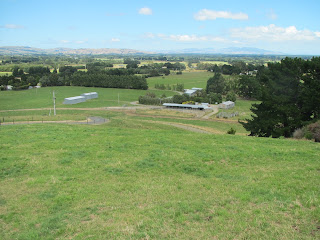Trying to defend farmers & farming practices by arguing with science or attacking the attackers is clearly failing. We need to demonstrate our commitment to practices that are sustainable, ethically grounded, scientifically verified & economically viable. To breakdown the urban disconnect with farmers will take a massive effort as well publicised environmental damage, breaches of animal welfare & negative public images of farming & farmers is very difficult to counter with genuine good news from farmers following “global best practice”.
Prof. John Ikerd, from University of Missouri, Columbia strongly debated the world trends of industrialisation of farming. Industrial scale farms have contributed he argued, to the financial crisis of many family farm businesses & impacting negatively on the environment & ecology. John believes this has enraged the mistrust of farming practices by non-farming people. Nor did he believe that most farmers & their families wanted to farm in that way, especially under corporate control. Perhaps it’s time to look at new relationships between farmers & consumers? John Ikerd suggested the audience at the Australian Dairy Conference (#ausdairy) seriously consider new models such as “Vertical Cooperation”….. That we look at the historical purpose of farming to move forward in a new direction. Farming has always had a multi-dimensional meaning: - a social dimension, an ethical dimension of sustainability (a genuine love of animals, pastures & soils) as well as providing healthy good quality food. Maybe it’s time to rediscover the “real culture of farming” & that “The past is the future”. These are challenging concepts to take on board as dairy farmers face increased volatility of milk prices & changing markets (the growth markets in the next decade are in emerging countries especially in Asia).
The ADC conference featured many discussions about farmer’s use of new technology & social media. There were sessions devoted to smart phone use & training in the use of twitter & blogging. Courtney Sullivan (Neilson, Australia) had surveyed Australian consumers about their knowledge of dairy farming & perceptions of how dairy foods are produced. This session about “Reconnecting the Disconnect” also included Nuffield Scholar Graeme Nicoll speaking about his efforts in “Agvocacy”. http://montrosedairy.com/ (@hoddlecows) Graeme writes about his pasture based dairy farm in south Gippsland.
Marian MacDonald ( http://milkmaidmarian.com/ (@milkmaidmarian) on the last day led an interesting training session on twittering & blogs. She writes a very popular blog about her family dairy farm & she has considered ideas about how farmers can use social media such as twitter to become advocates for good farming practices. During the training she had helpful support from Ron Paynter (@payntacow) another dairy farmer using twitter.
Throughout this blog I have used the sign @(twitter names) and #hashtags (these are used by twitter to indicate grouping of similar discussion topics….or topics you can search on twitter. For example if you want to search discussion at the Australian Dairy Conference search using #ausdairy.
Finally I’d like to mention the brilliant “Cows Create Careers” Program run by Deanne Kennedy & John Hutchison. During the ADC Conference secondary school children from 5 Australian States presented Video TV Adverts aimed at getting a higher farmgate price for milk. I thought this was amazing! The Cows Create Careers program is run in schools to encourage employment choices in the dairy industry. It clearly has a very important role in Australia in Reconnecting the Disconnect between the urban consumers & dairy farmers. http://www.thepeopleindairy.org.au/projects.htm
PS The best TV Video Advert was produced by Cessnock High school from NSW. I thought this was very clever & innovative……guys you were amazing!



















